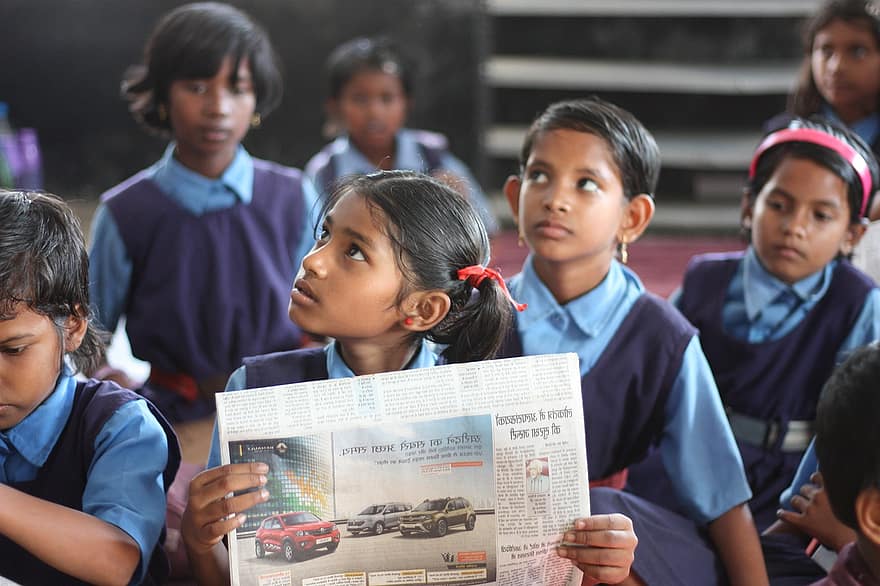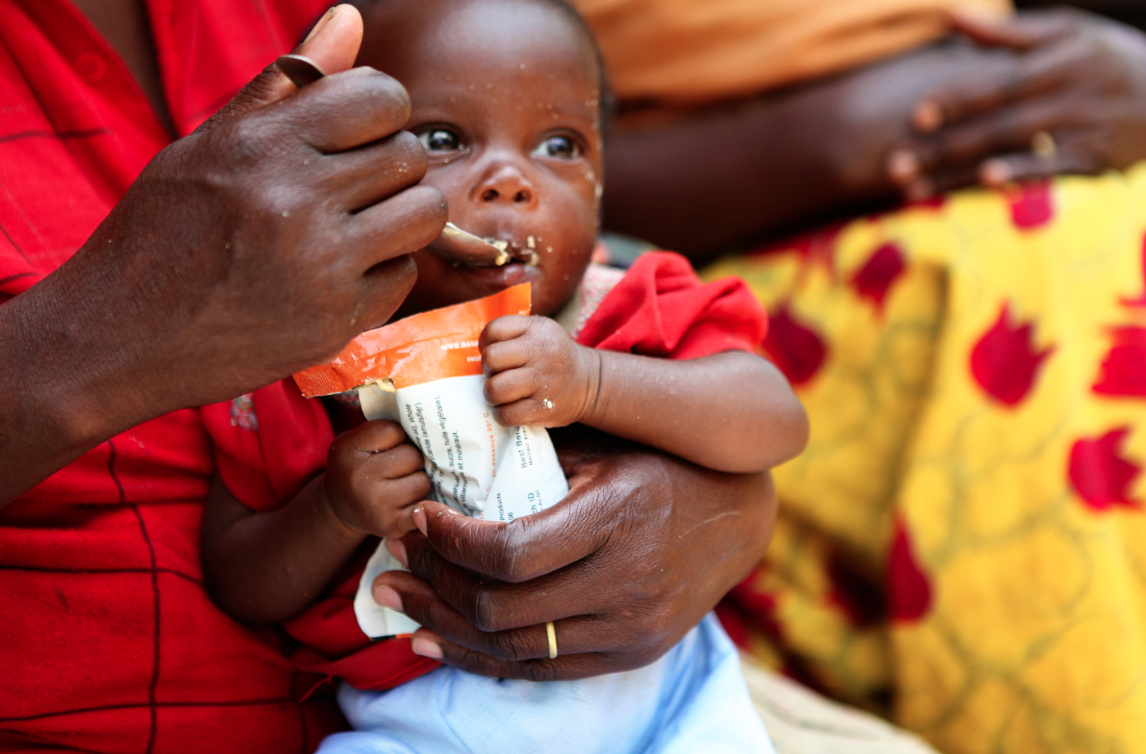How tech-driven monitoring is revolutionising India’s malnutrition fight

How tech-driven monitoring is revolutionising India’s malnutrition fight
In the assessment of a nation’s socio-economic progress, the health and well-being of women and children hold critical significance. Recognizing the multifaceted nature of undernutrition as not just a health concern but also an economic and human capital issue with far-reaching implications for a country’s development, the Indian government has taken significant steps to address this pressing challenge.
The implementation of the Saksham Anganwadi and Mission Poshan 2.0 represents a concerted effort to integrate and streamline existing schemes – Anganwadi Services, Poshan Abhiyaan, and the Scheme for Adolescent Girls – into a comprehensive and cohesive strategy.

By shifting the focus from mere energy and micronutrient sufficiency to a more holistic emphasis on improved health, wellness, and sanitation, the program aims to foster a comprehensive approach to addressing malnutrition. This approach is anchored in well-defined strategies and underpinned by a people-centric engagement model, emphasizing the importance of behavior change and community participation through the ‘jan andolan’ or people’s movement.
Recognizing the historical challenge posed by the lack of real-time malnutrition data, the Ministry of Women and Child Development has taken proactive measures to develop and deploy the ‘Poshan Tracker’ ICT Application. This digital tool serves as a significant step toward enhancing the monitoring and evaluation of nutrition-related interventions, enabling the government to gather real-time data and insights essential for informed policy decisions and targeted program implementation.

The integrated approach, along with the adoption of digital technologies such as the ‘Poshan Tracker’ ICT Application, reflects the government’s commitment to tackling the complex issue of undernutrition with a comprehensive and data-driven approach. By prioritizing the health and well-being of women and children, the government aims to create a sustainable and inclusive framework that fosters the overall development and prosperity of the nation.
The introduction of the Poshan Tracker smartphone application, in conjunction with the provision of smartphones to all Anganwadi centers in March 2021, marks a significant milestone in the government’s efforts to combat malnutrition and improve the health and well-being of vulnerable populations in India.
 With over 13.9 lakh Anganwadi centers and more than 10.3 crore individuals, including pregnant women, lactating mothers, children under 6 years, and adolescent girls, benefitting from the program, the initiative has demonstrated its widespread impact on the grassroots level.
With over 13.9 lakh Anganwadi centers and more than 10.3 crore individuals, including pregnant women, lactating mothers, children under 6 years, and adolescent girls, benefitting from the program, the initiative has demonstrated its widespread impact on the grassroots level.
The integration of Aadhar authentication for nearly 95% of registered beneficiaries is a crucial step in ensuring efficient and secure last-mile delivery of services. The Poshan Tracker application’s capability to identify and monitor malnutrition symptoms, such as stunting and wasting, has transformed the process of assessing and addressing nutritional deficiencies among children, providing a comprehensive and real-time understanding of the nutritional status of individuals at the Anganwadi center level.
By providing growth monitoring devices at the Anganwadi Centers for monthly child assessments, Mission Poshan 2.0 has facilitated proactive and timely interventions, thereby significantly enhancing the effectiveness of nutrition-related initiatives. The timely upload of data on nearly 7 crore children each month since April 2023 has not only enabled the government to gain actionable insights for informed decision-making but has also paved the way for effective and targeted interventions at the state and union territory levels.
The Poshan Tracker application’s real-time data capabilities have proven to be a game-changer, revolutionizing the approach to addressing malnutrition and health concerns among vulnerable populations. By surpassing the limitations of traditional data sources such as the National Family Health Survey (NFHS), the application has emerged as a comprehensive and invaluable tool in the ongoing efforts to promote and ensure the well-being of children and women across the nation.
The data collected through the Poshan Tracker application in August 2023 reflects a notable decline in the rates of wasting among children compared to the findings from the National Family Health Survey (NFHS-5) in 2019-21. The significantly lower percentages of severe acute malnutrition (SAM) and moderate acute malnutrition (MAM) among children aged 0-5 years, at 2.1% and 4.8% respectively, underscore the positive impact of targeted interventions and data-driven decision-making facilitated by the application. This reflects the effectiveness of the Mission Poshan 2.0 initiatives in addressing malnutrition at the grassroots level and highlights the success of the program in improving the nutritional outcomes of vulnerable children across the country.
By providing heat maps that offer in-depth analyses of malnutrition hotspots in each state, the Poshan Tracker application has empowered frontline workers and policymakers to access critical information effortlessly, facilitating well-informed actions and the efficient allocation of resources. Furthermore, the digitization and automation of physical registers previously maintained by Anganwadi workers have freed up valuable time, allowing them to focus more on delivering nutrition and providing early childhood care and education, thereby enhancing the overall quality of service delivery.
The application’s role in fostering transparency in the governance of Anganwadi services schemes is evident through the Poshan Tracker dashboard, which provides comprehensive information on various aspects, including the status of Anganwadi infrastructure, the provisioning of take-home ration and hot cooked meals to beneficiaries, growth measurements of children, and complete beneficiary management. By enabling a centralized and accessible platform for monitoring and evaluating key activities, the dashboard serves as a critical tool for assessing the effectiveness of ongoing interventions and ensuring accountability in the delivery of essential services to vulnerable communities.
The success of the Poshan Tracker application stands as a testament to the government’s commitment to leveraging technology for social development and underscores the transformative potential of data-driven approaches in addressing complex social challenges, particularly in the domain of public health and child welfare.
The comprehensive features of the Poshan Tracker application demonstrate the Indian government’s commitment to leveraging technology and innovative solutions to ensure the holistic well-being and development of its citizens, particularly women and children. The application’s ability to facilitate seamless beneficiary migration between Anganwadi centers, while ensuring the preservation of data integrity, reflects its efficacy in providing uninterrupted services and support to vulnerable communities, even in the face of demographic changes and relocations.
By making the application accessible in 22 regional languages, in addition to English and Hindi, the government has demonstrated its commitment to inclusivity and accessibility, ensuring that the benefits of the Poshan Tracker reach a diverse and multilingual population, thus fostering a truly universal and user-friendly platform for information dissemination and service delivery.
The operationalization of the Poshan Helpline (14408) further enhances the program’s reach and impact, empowering beneficiaries to voice their concerns and enabling authorities to monitor and address gaps in service delivery effectively. The introduction of SMS alerts for the delivery of take-home ration under the Supplementary Nutrition Program not only ensures last-mile tracking but also promotes transparency and accountability in the distribution of essential services, thus reinforcing the government’s commitment to efficient and reliable service delivery mechanisms.
The integration of the Poshan Tracker with the Reproductive and Child Health (RCH) and the Universal Women’s Integrated Network (UWIN) portals of the Ministry of Health and Family Welfare highlights the interconnected nature of various health and welfare initiatives, emphasizing the importance of a holistic and integrated approach to addressing complex social challenges and promoting synergies among diverse stakeholders and departments.
The government’s continued focus on leveraging the power of data and analytics through the Poshan Tracker exemplifies its dedication to implementing evidence-based strategies and interventions that yield maximum impact and sustainable outcomes. By harnessing the potential of technology and innovation, India remains steadfast in its pursuit of a Suposhit Bharat (Nutrition-rich India), thereby laying the foundation for a healthier and more prosperous future for all its citizens.




